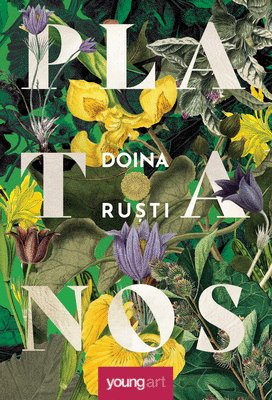
1.
At first, I thought he must belong to some high-ranking family—distinguished people who traced their lineage back to ancient princes, or at least to lofty officials, the kind who travel a lot and live in big houses filled with books and beautiful things. People from such families stand out not because they dress more elegantly, but because of the indulgent way they speak to you. They look at you, smiling, ready to indulge you, and yet you feel as though they’ve just done you a favor. He was that kind of person, illuminated by an inner clemency that instantly turned you into a cat caught in the rain.
I remember that April morning: he was planted firmly by the kiosk, fairly tall for his age, perhaps also because of the jacket that lifted his shoulders.
— What are you doing there? he asked us, in an enchanting voice. By any chance, are you talking about the Golden Ball?
For a moment, no one answered. We were bewildered. We understood what he meant, although it had never occurred to any of us to call it that. Across the river there really was a shining sphere, there before our arrival, as large and as mysterious as the Moon. I don’t think anyone had asked too many questions about it. It was just there. And yet that very morning I had noticed that the globe had somehow changed its shade: now it shimmered in a golden-violet, as if someone had breathed a faint lilac haze over it.
— They painted it yesterday, he explained, with the same jovial voice.
It seemed obvious to him that all golden balls could be painted.
A long, awkward silence grew between him and our stunned minds. And what could we have said, when up to that point the only painted thing we knew was the kiosk? Cati painted it from time to time—it had been purple, then yellow, and for the past few weeks it was white.
All eyes were fixed on the newcomer, who struck me as the most enigmatic being I had ever seen. Vio was, as they say, left open-mouthed with astonishment. But so were the others—especially the girls—staring at him in a way they had never looked at anyone before, with obvious admiration. He knew it, but despite the advantage, he wasn’t arrogant. And of course—when you’re popular, you can afford to play modest! He also had something, a kind of spark in his eyes, that made you love him. And in that moment of wonder that had warmed us all, he told us his name.
— Platanos.
Normally we would have laughed—not only did it sound ridiculous, but the vowels themselves carried a kind of pretension, something stiff, like a plastic flower.
— Plātanos, he repeated, with the stress on the first a.
His voice now sounded friendlier, and our smiles dissolved.
— It’s the name I chose for myself. And you?
— Us what? I muttered.
— What names have you chosen?
Obviously, no one had ever told us we had the right to choose a name for ourselves—we didn’t come from any privileged family, like he did! In fact, I could hardly remember much at all. Everything had slipped away, swallowed by time, but especially by all the events I had lived through since then. To be honest, I have more memories of Cati than of my mother. All I know is that at some point I lost the name I was given at birth and received another one, which I had accepted joyfully from the very first moment, convinced it suited me better. But now, listening to Platanos, a confusion like autumn fog descended upon me.
One thing became certain: the name that had always seemed beautiful to me now began to sound ridiculous. Sisinel.How could I possibly introduce myself as Sisinel in front of a guy who had just called himself Platanos?!
Goodreads: https://www.goodreads.com/author/show/2919952.DoinaRuti